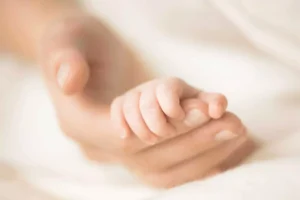Foster parents Jodee and Karl Kulp got the call one evening in 1986. They learned that a homicide had occurred in the area, and – in its wake – an infant girl needed a home.
“We learned this baby was dying,” Jodee recalled, “so we said, ‘Sure, we’ll take her and love her with all of our hearts.’ ”
The baby, named Liz, had already lived in five homes. At five months old, she weighed just 11 pounds.
“She was not attached to any human being,” says Jodee. “She did not want to look at you or touch her. She wouldn’t eat. She didn’t sleep. If you held her she turned into a stiff board.”
This child was unlike any other the Kulps had encountered in their foster care experience. They learned a technique called “kangarooing,” often used with premature babies, wherein for a month they held the baby next to their skin.
“By doing this, Liz learned to understand the world around her – the sounds and scents,” says Jodee.
Jodee and Karl experienced a small breakthrough when Liz was 7 months old.
“We did not connect with her until one day I was rocking her on my lap and singing ‘Jesus Loves Me,’ ” Jodee says. “And in a moment, her face lit up, she looked me straight in the eyes, and relaxed.”
“That next month she sat up, crawled and became a happy little baby. She was still busy, still had eating issues and still didn’t sleep, but it didn’t matter. We just loved her.”
The Kulps still didn’t have a diagnosis for Liz, but they knew something was wrong.
Their daughter was potty-trained at 18 months because she couldn’t stand the feeling of moisture against her skin. Lights, smells, and sounds were often too intense. Liz began having meltdowns that sometimes lasted two hours straight. She woke up from naps screaming.
As she grew, Liz had trouble learning in school, and with external stimuli. Sometimes during the holidays, when they gathered with family, the Kulps would have to separate from joyful chaos and gather in the bathroom to eat.
“We were not able to continue the life we had,” says Jodee. “We chose not to bring any more foster children into the home. We truly believed if we loved her enough then life would be perfect. This was not the case, however.”
It was trial and error for the Kulps, as doctors attributed Liz’s struggles to various conditions, including ADHD and autism. It wasn’t until Liz was 12 that they received a final diagnosis of fetal alcohol spectrum disorder (FASD).
Jodee quit her work running a graphic design firm to home-school her daughter, who was not thriving at school. Jodee applied the Suzuki method – lots of encouragement and constant repetition – to history, math and reading. It made a big difference. At age 13, Liz wrote her first book, The Best I Can Be: Living with Fetal Alcohol Syndrome.
As a teenager, Liz applied for and won $10,000 from a foundation, and she began an inspirational singing group called More Angels. For the next four years, she traveled the country with some other teens and Jodee, singing at churches and community events.
At age 18, Liz moved out on her own, and unfortunately started drinking.
“Within a week, she she went from zero to a liter a night,” says Jodee. “She ‘died’ and was resuscitated twice.”
Liz eventually quit drinking – now going on eight years of sobriety – but she was diagnosed with Type 1 diabetes and kidney failure, and spent more time in the hospital. In retrospect, Jodee says, “Her abilities blinded us to her disabilities. If I knew what I knew today, I would have started preparing Liz to stay home. She looked and talked like the right age, but we were in denial; she was many years younger inside.”
Jodee is now the executive director of Better Endings New Beginnings, an advocacy and virtual support group for families and people living with FASD. Liz, 31, lives in a small home next door to her parents. She lost her hair to diabetes and came up with an idea to cheer up sick children.
“Her dream is to create pink, purple and turquoise princess/mermaid hair for girls who’ve lost it to chemo,” says Jodee. “She can design and sew a wig in two hours.
“We can’t put limitations on people when they have dreams. We can’t put our expectations on them.”














